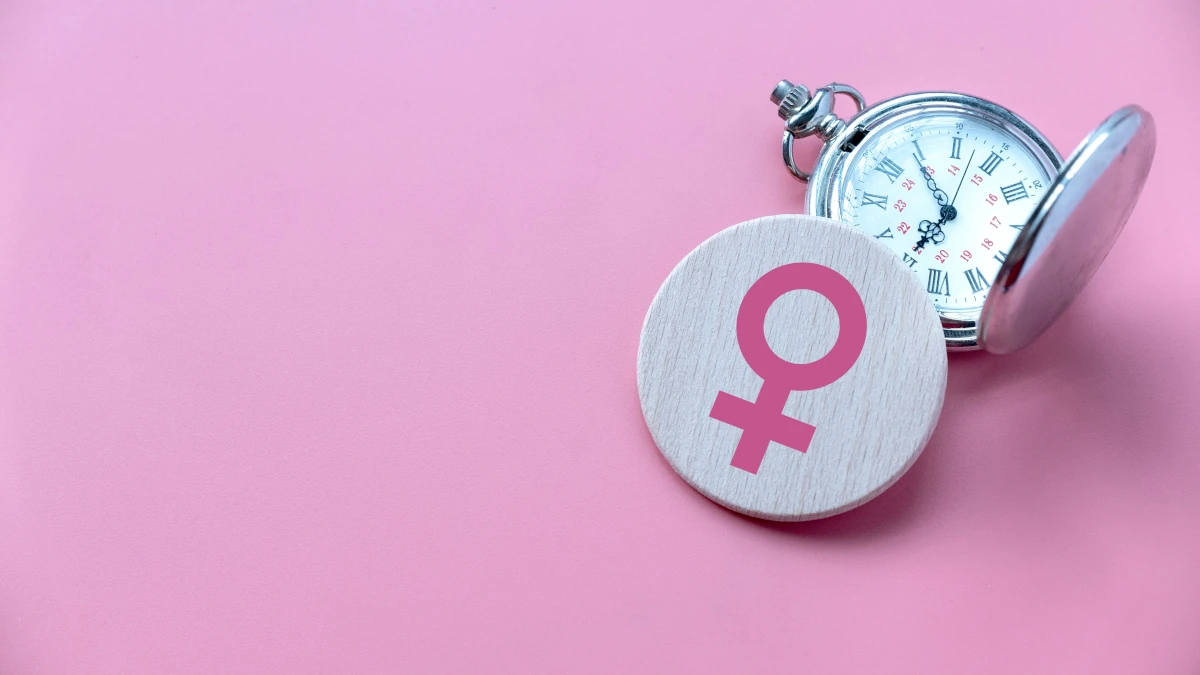As a woman, we produce two primary sex hormones that have a great influence on our physical and mental well-being, namely progesterone and oestrogen.
The multifunctional hormone oestrogen
Oestrogen has over 300 different functions in our body. We form three different types of oestrogen, namely oestradiol, estriol and estrone. We produce oestrogen directly in the ovaries and indirectly elsewhere in the body. Oestradiol which is the most powerful of the three oestrogens produced in the ovaries – before ovulation, among other things, helps stimulate mood, libido and is responsible for the female forms, has beneficial effects on muscles, brain, heart, sleep, skin and metabolism. At the same time, oestradiol helps your body prevent insulin resistance. Estriol, which is formed in the ovaries, adrenal glands, and liver, has the same effect as oestradiol, only weaker and particularly beneficial for our mucous membranes. Estrone, which is formed in fatty tissue, has an influence on our bone structure.
Progesterone’s impact on well-being
Progesterone helps reduce inflammation, build muscle, boost libido, improve sleep, strengthen bones, stabilise the lining of the uterus and has a calming effect on the nervous system.
About 90% of our progesterone is produced after ovulation in the “yellow body”, which is the “shell” / follicle from which the egg is detached. The remaining 10% we produce in our adrenals. There should preferably be a balance between progesterone and oestrogen. If imbalances occur between the two, different genes can arise*. Since the majority of women’s production (women of childbearing potential) of progesterone and oestrogen occurs during the monthly cycle, it is essential that women ensure healthy ovulation every month and thus a stable cycle and stable production of hormones.
Navigating hormonal imbalances during perimenopause
Women are born from birth with a certain number of eggs (egg reserve), which are used on an ongoing basis. Eventually, with age and through menopause, the time when you have not had bleeding for a year, the egg reserve is exhausted. But in the years leading up to menopause; What is referred to as perimenopause (peri = around), you see in many women that imbalances occur in the hormones. It may be already from around the age of 35-40 that the ovaries do not function optimally and that there may not be ovulation at every menstrual period. It can result in several unpleasant symptoms such as: mood swings, poor sleep, headaches, brain fog, fatigue, joint pain, weight gain, dry mucous membranes, and decreased sex drive**.
Postmenopausal hormonal changes and the influences of stress
When you as a woman have exhausted your egg reserve from menopause onwards, we will no longer ovulate and thus our own production of oestrogen and progesterone will decrease. However, as mentioned earlier, 10% progesterone is still produced in our adrenal glands. In addition to progesterone, our adrenals also produce our stress hormones adrenaline and cortisol. However, our stress response system is designed so that it will always favour the production of stress hormones over sex hormones. So, if we go and “stress” all the time, it will affect the production of, among other things, progesterone – as the adrenal glands will be most busy producing adrenaline and cortisol. After menopause, there are only adrenal glands to produce our own progesterone – so you should always look inward in relation to whether you can remove any stressors in your everyday life, so that the adrenal glands “too calm” to also produce progesterone.
*There can be several different reasons why a cycle becomes unstable and that women experience hormonal imbalances, such as missed periods, PMS, powerful and perhaps painful periods, migraines, acne, infertility, mood swings, poor sleep, etc.
**It is important to always consult your doctor if you are in doubt about the cause of your symptoms. You can also consult a Doctor-Examined Complementary Hormone Therapist™, who specialises in hormones. Complementary hormone therapists work on the basis of finding the root cause of the imbalance and will most often, based on blood/urine samples, see where the imbalance is, in order to better target an individual course of treatment.

